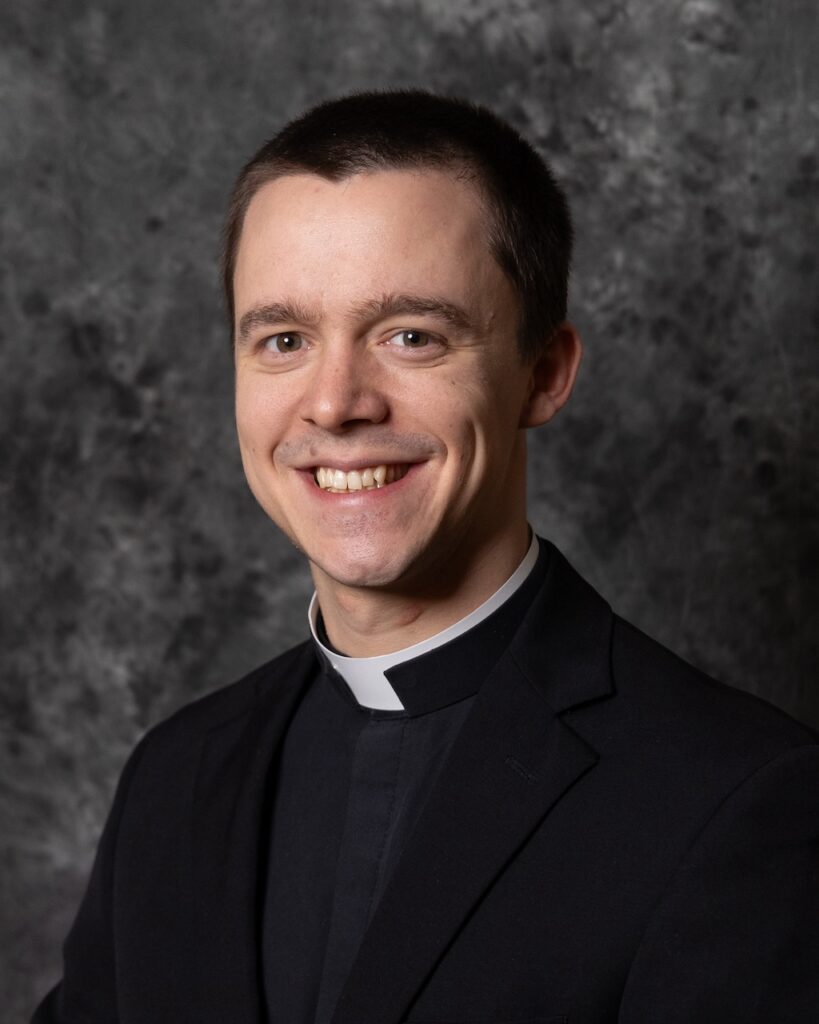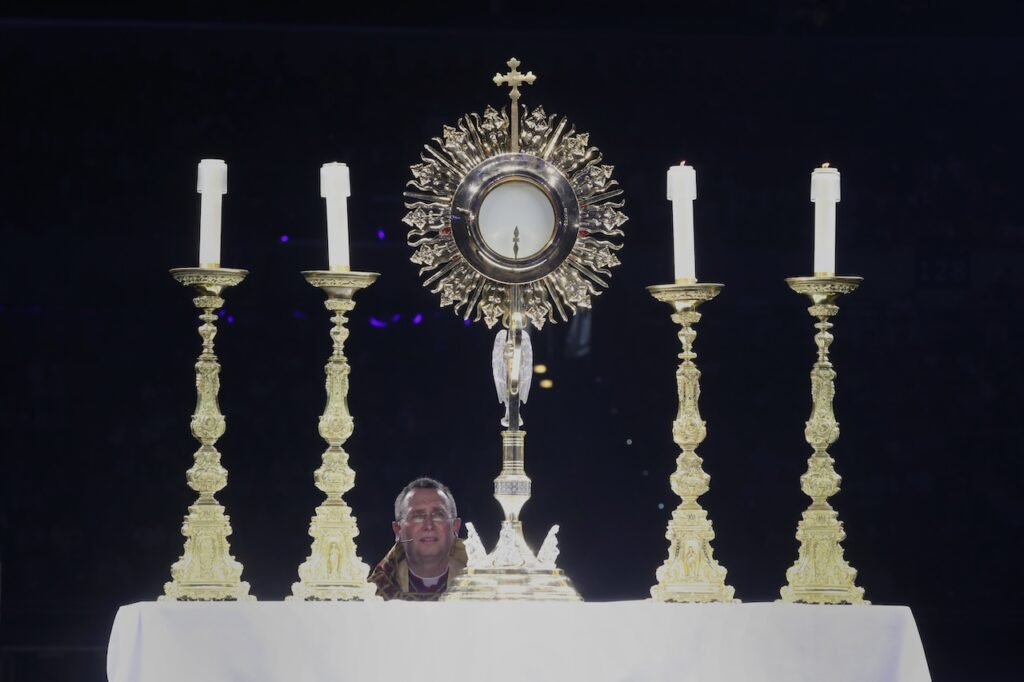Reflection on Mass readings for July 28 (17th Sunday in Ordinary Time)
2 Kings 4:42-44
Psalm 145:10-11, 15-16, 17-18
Ephesians 4:1-6
John 6:1-15
One of the most difficult crosses that many of us will have to carry is the feeling and experience of isolation.
Isolation comes in many forms. Many of us are familiar, for instance, with the pain of separation, when circumstances force us to uproot ourselves from our old communities or live at a greater distance from our loved ones.
In other cases, the isolation may be a more internal experience, as we struggle to connect with those around us, or even bear the cross of spiritual solitude within our own relationships or family.
Perhaps the most profound isolation of all comes when we feel, whether accurately or not, that we have become separated from God himself, and cannot perceive his presence.
Our Lord offers us the perfect antidote to this isolation: himself.
In this Sunday’s Gospel account of the Feeding of the 5000, Jesus unites the crowds who followed him, by offering them nourishment that not only meets their basic needs, but surpasses them with a supernatural abundance.
This miracle both overcomes their bodily hunger, and becomes a sign of something more, a profound image of the means by which Jesus himself would unite us within the communion of his own body, the Church.
His prayer of thanksgiving and the offering of loaves should, of course, remind us of the sacrifice of the Mass and the miracle each of us witnesses every Sunday in the offering of the Holy Eucharist.
Pope St. John Paul II, echoing the reflections of the Fathers of the Church, would refer to the Eucharist as the “sacrament and source of the Church’s unity,” by which we are gathered together and the wounds of our isolation are healed.
This renewal begins in our relationship with the Lord himself as we are united more closely with him through the reception of his body and blood, a union which nourishes and strengthens us even in those times when we might otherwise feel alone or separated from his love.
Best of all, the fruits of this union are not confined exclusively to our relationship with Christ himself. Instead, as we draw closer to him, we find that we are also united more closely with every other member of the Church who shares in this mystical bond.
St. Paul, in his letter to the Ephesians, urges us to live this call by growing daily in virtue, living “with all humility and gentleness, with patience, bearing with one another through love, striving to preserve the unity of the spirit through the bond of peace: one body and one Spirit” (Eph 4:2-3).
This year, the Catholic Church in the United States has taken up this theme as we enter into the Year of Mission during the National Eucharistic Revival. We are urged to reflect on where we can put this call to humble charity into action.
Strengthened by the graces of the Eucharistic sacrifice and united in that same love, we are sent out to help heal the wounds of human and spiritual isolation that afflict so many, especially those on the margins of our communities.
It is imperative that each of us prayerfully discern where we can live this call to mission, remembering that our mission fields can and often will be as diverse and as humble as our own homes, families, and parishes.
We can work to restore this communion with efforts as simple as an intentional focus on boundaries and quality time for prayer and shared meals with our loved ones, the dedication of a few hours to seek out and serve the poor, or gestures of loving outreach to the lonely and homebound.
Regardless of where the Lord sends us, the source of our strength on this missionary journey remains the same: the continual, superabundant nourishment given to us in each Mass.
If we allow him to nourish us in this place of holy unity, we can always trust in faith that no matter where he may lead, we will never be left alone, and never go hungry.
 Father Cassidy Stinson is the administrator of St. Jude, Radford; chaplain of Radford University Catholic Campus Ministry; and a member of the Institute of Jesus Priest, a secular institute founded by Blessed James Alberione.
Father Cassidy Stinson is the administrator of St. Jude, Radford; chaplain of Radford University Catholic Campus Ministry; and a member of the Institute of Jesus Priest, a secular institute founded by Blessed James Alberione.

